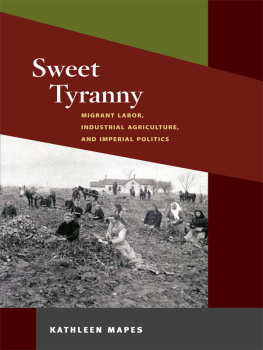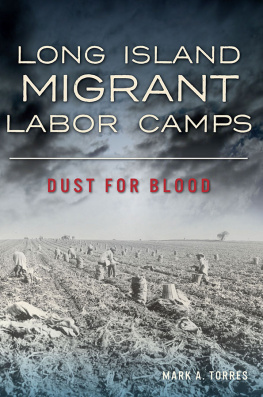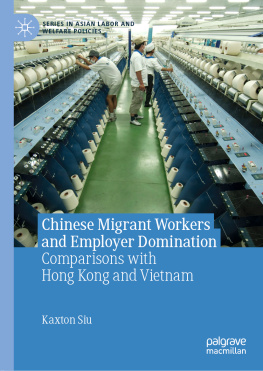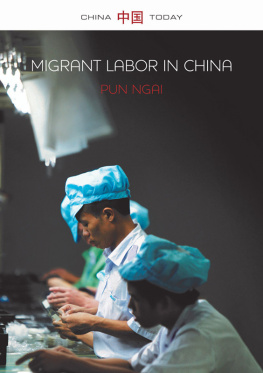2009 by the Board of Trustees
of the University of Illinois
All rights reserved
Manufactured in the United States of America
1 2 3 4 5 C P 5 4 3 2 1

This book is printed on acid-free paper.
Library of Congress Cataloging-in-Publication Data
Mapes, Kathleen, 1967
Sweet tyranny : migrant labor, industrial agriculture, and imperial politics / Kathleen Mapes.
p. cm. (The working class in American history)
Includes bibliographical references and index.
ISBN 978-0-252-03436-7 (cloth : alk. paper)
ISBN 978-0-252-07667-1 (paper : alk. paper)
1. Migrant agricultural laborersMiddle WestHistory20th century. 2. Child migrant agricultural laborersMiddle WestHistory20th century. 3. Agricultural laborers, ForeignMiddle WestHistory20th century. 4. Rural industriesMiddle WestHistory20th century. 5. IndustrializationMiddle WestHistory20th century. 6. Agriculture and politicsMiddle WestHistory20th century. 7. AgricultureEconomic aspectsMiddle WestHistory20th century. 8. Middle WestRural conditions. 9. United StatesEmigration and immigrationGovernment policyHistory20th century. 10. ImperialismHistory20th century.
I. Title.
HD1527.M54M37 2009
331.5'440977dc22 2008041247
Acknowledgments
Over the many years it took to research, write, and revise this book, I have benefited from the generous support of a number of institutions and individuals. These acknowledgments represent merely a token of my deep appreciation.
The History Department at the University of Illinois provided much-needed funding that made the bulk of the research possible. The Illinois Project for Research in the Humanities gave me both time and money to begin serious writing. Since then, a Presidential Summer Fellowship and a Nuala Drescher Fellowship from SUNY Geneseo made it possible for me to finish the book. I am thankful to all the above-mentioned institutions for helping financially support my research and writing. I am also thankful to the numerous librarians and archivists who aided in my quest to identify and locate primary sources, including Michigan State University Archives and Historical Collections; Michigan State University Library; the Archives of Michigan at the Library of Michigan; the Hoyt Library, Saginaw, Michigan; the Bay County Historical Society and Museum, Bay City, Michigan; the Bancroft Library, University of California, Berkeley; University Library, University of Illinois, Urbana-Champaign; the Rare Book and Manuscript Library, University of Illinois; the National Archives, Washington, D.C., and College Park, Maryland; the National Archives, Great Lakes Region, Chicago; and Mann Library, Cornell University.
I am deeply indebted to those who first introduced me to the historians craft. Norman Pollack made me believe that history really does matter and that those who choose to become students of the past must do so passionately and responsibly. David Bailey pushed me to think conceptually and encouraged independent thinking. Lisa Fine stressed the importance of taking gender seriously. Joseph Spielberg Benitez and Leigh Binford welcomed me into their discussions of Marxist anthropology and the history of sugar. Most important of all, James Barrett helped to shape and shepherd this book in its earliest stages. I am deeply grateful for his support, as both my life and what would become the book went in unconventional directions. His genuinely humane approach to life and to history has influenced me deeply.
Many people have read all or parts of this book and deserve my thanks. Matt Garcia, Nils Jacobsen, and Sonya Michel read an early draft, and provided the perfect mix of honest constructive criticism and encouragement. The participants in the Newberry Seminar in Rural History and the New-berry Library Labor History Seminar read select chapters and suggested revisions that certainly helped to make this a better book. Cathy Adams, Ruth Fairbanks, Tobias Higbie, Rose Holz, Jordan Kleiman, Val Littlefield, Michelle Moran, Andrew Nolan, Glenn Penny, Randi Storch, and Caroline Waldron not only provided critical commentary on individual chapters, but friendship. I would especially like to thank Randi for continuing to listen to my concerns, answer my queries, boost my confidence, and read anything that I send her at the drop of a hat. Many of my colleagues at SUNY Geneseo have supported me as a teacher, a scholar, and a friend, even under the most trying circumstances. My three department chairs, James Williams, Michael Oberg, and Tze-ki Hon, looked out for my best interests and encouraged me to do my best, while the department secretary, Barb Rex-Mckinney, provided help whenever I asked. Tze-ki deserves special mention for reading the entire manuscript.
At the University of Illinois Press, acquisitions editor Laurie Matheson expressed early interest in this project and waited patiently as revisions took much longer than expected. She also provided very helpful suggestions as I revised the manuscript. I would also like to thank those who read the manuscript for the press, including an anonymous reader, David Montgomery, and Cindy Hahamovitch. Cindy made especially helpful comments and generously supported this book, providing a model for what it means to be in a scholarly community. Leon Fink deserves thanks for suggesting the title for the book and Janine Giordano for selflessly helping me collect illustrations at the very last minute.
Although I have thoroughly enjoyed researching and writing this book, it remains a distant second to what is and will forever be most important in my lifemy family. My mother, Dorothy Mapes, has always supported me and continues to believe in everything that I do. My siblings, their spouses, numerous nieces and nephews, and in-laws provided welcome breaks from academic life. My husband, Stewart Dean Atkin, has been ever so patient over the years I have spent working on what he likes to call the book. His love and levity have made my life meaningful and fun. Our daughters, Dorothy and Wendy, never cease to inspire me with their boundless love and seemingly endless optimism. My niece, Rita, remains a constant source of energy and humanity. More than any other person, my twin sister Mary Mapes, also a historian, has made sure that this book would see the light of day. In the earliest stages, she provided much-needed (and free) child care, taking time away from her own historical research and writing. Since then, she has not only listened patiently and attentively as I discussed the manuscript with her, but she has read through more drafts than I care to admit or that she cares to remember. Her keen insight and critical perspective have made this a much better book than it would have been. I cannot thank her enough. Finally, with a very heavy heart, this book is dedicated in the memory of Peter R. DAgostinofellow historian, Ritas dad, and Marys husband. Mere words cannot begin to express how completely and deeply he is missed.
* * *
An earlier version of appeared as A Special Class of Labor: Mexican (Im)Migrants, Immigration Debate, and Industrial Agriculture in the Rural Midwest,






 This book is printed on acid-free paper.
This book is printed on acid-free paper.